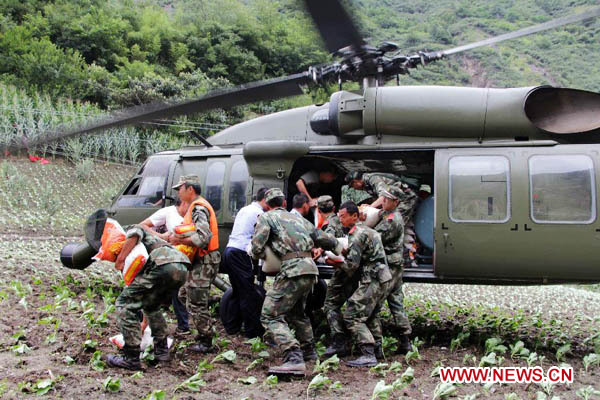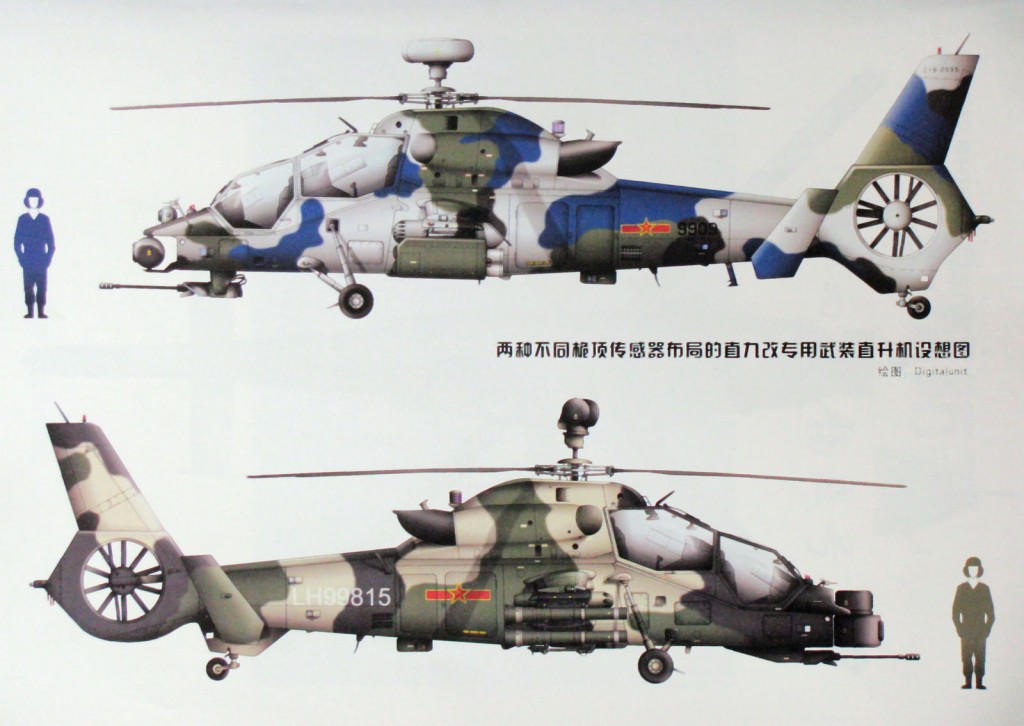General Aviation (compare to Civil Aviation)
- General aviation covers a large range of activities, both commercial and non-commercial, including flight training, air ambulance, police aviation, aerial firefighting, air charter, bush flying, gliding, skydiving, business aviation, private flight and many others. Generally speaking, aviation for business, agriculture, forestry, geographical mapping, and air rescue is for the public consumption (government), whereas private flight and sightseeing flight are more for individual consumption.
- Flight altitude requirements in CHINA:
- Agriculture and Forestry: 15m – 300m
- Air sports & training & sightseeing flying: below 1500m
- Flying ads: below 3000m
- Parachute: below 2400m
- Aerial photograph & geophysical prospecting & remote sensing: 3000m – 7000m, sometimes to reach 8000m – 9000m
- The process of low-altitude opening policy greatly affects general aviation’s market.
China’s General Aviation is still in Primary Stage
Compare to the flight of scheduled air transport (including all passenger & cargo flights operating on regularly scheduled routes), general aviation’s industrial base is small and in the primary stage. According to Baidu Baike the total flying time of GA has been increased from 40 thousands hours in 1999 to 130 thousands hours in 2009, with a compound growth rate of 12.5%.
China’s General Aviation Market is Promising
Base on the developing experience of western countries, there lies a correlation between economic development and transportation industry:
GDP per person | The 1st choice of transportation |
1000 USD | vehicle |
2000 USD | Tend to choose commercial aviation |
4000 USD | Private jet is beginning to popularize |
In 2010, China’s GDP per person was close to 4500 USD which indicates that China’s airline industry will embrace a booming and fast development situation.
Compare to the United States, which weighs much importance on general aviation than commercial aviation that with a contribution of 150 billion USD per year and a creation of 1% of GDP and 1.26 million jobs, China has not developed the market of general aviation. However, China’s commercial aviation industry (which refers to the civil aviation in high-altitude space) has become the second largest market in the world. Therefore, this market structure creates a huge waster (which refers to the waste of low-altitude space) that gives room for growth in the general aviation space.
Business Airplane Market will be the First to Take Off
- Present situation: the enterprise and individual from economic zones of Yangtze River Delta and Pearl River Delta are the main consumers.
- Price: the cheapest corporate jet in China is about 100 million RMB and the most expensive one can reach approximately 400 million RMB.
- Volume: the total amount of corporate jet was at 28 in 2008 and 46 in 2009, with a growth rate of 64%.
- Advantage: save-time, efficient, confidential space, comfortable environment.
- Opinion from China Securities Journal: The consumption capacity and demand towards corporate jet have already been cumulated to a certain extent to be explored. In this case, it is likely that prospect is more from big state-owned enterprise, entrepreneur of private company and government.
Private jet will Create about Ten Billion Market
Once low altitude opened, the amount of prospect in private jet market is estimated more than 300 thousand people which will bring the whole upstream and downstream industry into thousands billion RMB market.
As for now, the total amount of private jet is about 310 thousand in the world whereas the total volume of personal jet in America is about 200 thousand which creates a total of 50 billion USD. However, in China, the ownership of private jet is about 70 and merely 200 people have received driving license.
Low-altitude Opening Policy is Crucially Important
85% of airspace in China is used for military use and only 15% of airspace is for civil aviation, which is totally opposite to America. In America, the airspace resource is managed in two models: wartime and peacetime. During peacetime, the airspace is divided into commercial aviation use, business airplane use, and general aviation use. Accordingly, general aviation market takes up over 60% of America’s airspace based on this peacetime model. So, China Securities Journal told that the opening level of low altitude will decide the development speed of general aviation.
Helicopter
The Present Situation & General Use of Helicopter
Present Situation:
- As for now, China owns around 300 civil-use helicopters which are far behind to meet the need of market. Among these 300 helicopters, a research accomplished in 2011 illustrated that 10 helicopters were bought by individual and 16 helicopters were bought by the name of enterprise (e.g. Midea, sanygroup, and Huaxi Village). These 26 helicopters were all imported from abroad and 70% of them were made in America.
- Another data is from John Garrison, CEO of Bell Helicopter, that China has around 600 turboshaft helicopters.
Comparison: in America, half of total 100 thousands helicopters are owned by individual. Even though area of America and China is nearly the same and the population of America is only one fourth of China’s, however, ownership of helicopter in America is 180 times of China’s.
Usage: Oil exploration, sea rescue, line patrol for electricity, emergency rescue, news report, business purpose, leasing service for various purposes (wedding shooting, tourists), self-fulfillment.
Helicopter / Private jet will be in Great Demand
Estimation:
- Due to the severe condition of lacking of helicopter for 2008 Wenchuan earthquake rescue and for surrounding security situation, China Securities Journal estimated that the total demand of helicopter in the next ten years is about 2000 which includes 400 military-use helicopters (according to a worldwide-used ratio of helicopter and military-use helicopter: 100:20). Xia Qunlin, a vice-general manager from AVIC HAIG (Harbin Aircraft Industry Group), anticipated that the total demand in the next 10 years is about 1500 helicopters.
- According to the data from Firestone Management Group, the registered amount of private jet was about 28 in 2011, with a total value of 1.1 billion RMB. 2011 Hurun Wealth Report demonstrated that the volume of Chinese millionaires had already reached 9600 thousands including 60 millionaires whose assets are over 100 million RMB. At the same time, another market research depicted that 1/6 of Chinese millionaire shows interest in purchasing a private jet.
- Wangsheng, a Deputy District Mayor of Binhai District in Tianjin, told the rate of ownership of helicopter per million Chinese is much lower than the worldwide level. In the next 20 years, this market is going to have a potential space of 3000 helicopters to grow with a total helicopter industrial value of 15 billion RMB.
- China Aviation News: in the past three years, there was no concept about private jet market in China. However, in next two years, this market growth scale will be maintained between 20% and 25%, or even above.
- World Journal (USA): it is possible that China exceeds America to be the largest private jet market of ownership in the world in the next ten years.
- Due to the limitation and regulation in China, Chinese people who are wealthy are eager and curious about adventuring. Another data from a deputy director general of civil aviation administration is also supportive to justify this point that the total amount of registered private jet (include helicopters) is approximately 1000 and the total amount of unregistered ones is more than 400. Among these 400 private jets, glider and delta-winged aircrafts are all included.
- Among the only 26 private helicopters in China, the need can be classified into following aspects:
- 46.2% of owner weighs much important on helicopter’s business value and function (safe, comfortable, high-end, and confidential).
- Name of client: Sany Heavy Industry, Midea, Tianrui Group, Wang Bi Group, Reignwood Group
- Haier Group & Chun Lan Group: to be flexible in short-distance transportation, visiting factories, attending business meetings.
- Helicopter is used as a tool of PR to invite guest to have an airplane tour and sightseeing. In addition, like Reignwood Group, it purchased two helicopters for picking up VIP members. Some real estate companies buy or rent helicopters as a marketing tool to pick up prospect to visit their new buildings.
- 42.3% of owner weighs much on experiencing the excitement of driving a helicopter. Due to the limitation and regulation, the chance of physically driving helicopter is very few.
- 46.2% of owner weighs much important on helicopter’s business value and function (safe, comfortable, high-end, and confidential).
- The type of buyer or prospect:
- By status: entrepreneur from private enterprise (individual), private enterprise (corporation), stars (actors and signers)
- By purpose: helicopter-driving enthusiastic, business purpose.
The Feature of Chinese Market
Key Players in Helicopter Market
Eurocopter
General idea:
- The Eurocopter Group is a global helicopter manufacturing and support company. It is the largest in the industry in terms of revenues and turbine helicopter deliveries. Its head office is located on the property of Marseille-Provence International Airport in Marignane, France, near Marseille. The Eurocopter Group was formed in 1992 through the merger of the helicopter divisions of Aérospatiale and Daimler-Benz Aerospace AG (DASA). The company’s heritage traces back to Blériot and Lioré et Olivier in France and to Messerschmitt and Focke-Wulf in Germany.
In China:
- Eurocopter has entered China for 40 years and established Eurocopter China in 2006. Subsequently, its business expanded from Hong Kong to Beijing, Shanghai, Shenzhen, Chengdu, and Wuhan. Jointed with Aviation Industry Corporation of China, Eurocopter began to manufacture EC175 helicopter to enlarge its market share in China. On the day of EC175 helicopter launched in 2008 Beijing international aviation expo, Eurocopter China received a total of 111 orders from different countries.
- In 2011, under an agreement signed with Eurocopter, a subsidiary of the European Aeronautic Defense and Space Company, Wenzhou-based Zhong’ou International Group will assemble helicopters at one of its manufacturing plants in Changshu in Jiangsu Province, while Eurocopter, the world’s No. 1 helicopter maker, will provide spare parts and technical support.
- The first helicopters – seating six to eight people and powered by turbo-charged engines – were delivered in 2012. The helicopters costs between 30 million yuan (US$4.55 million) and 60 million yuan each, according to the newspaper. Eurocopter has been seeking a partner to produce high-end helicopters for business use in the Chinese mainland for some time.
- The Sikorsky Aircraft Corporation is an American aircraft manufacturer based in Stratford, Connecticut. Its parent company is United Technologies Corporation.
- In 2002, the Sikorsky Aircraft Corporation entered China and set up Shanghai Sikorsky Aircraft Company and Beijing office. In 2008, Shanghai Sikorsky Aircraft Company allied with Changhe Aircraft Industries Group Co., Ltd to increase capital attempt to contend against Eurocopter.
- Bell Helicopter is an American rotorcraft manufacturer headquartered in Hurst, Texas, near Fort Worth. A division of Textron, Bell manufactures military helicopter and tiltrotor products in and around Fort Worth, as well as in Amarillo, Texas, and commercial rotorcraft products in Mirabel, Quebec, Canada. Bell provides training and support services worldwide.
- Due to its strong American military background, Bell Helicopter’s process of entering China is very slow. However, its activities in China have become more frequent, such as discuss some business cooperation with China’s mainland entrepreneurs, in order to tap Chinese market.
- In November of 2012, Bell Helicopter appointed Shanghai KingWing General Aviation Compang and Guangzhou H&P General Aviation Service Company as its client’s service centers with two types of helicopters, Bell 429 & Bell 407, to establish support & service system in China. On the same day, Bell Helicopter signed a MOU with Guangzhou Civil Aviation College to set up maintenance training institution only targets at Bell 206 L4 and Bell 407.
- Name of Chinese Clients: xin ya airline (新亚航空), Shan shui Group (山水能源), State Grid Corporation of China.
- Sales performance as for November of 2012: Bell Helicopter has already sold 24 helicopters in China including Bell 206, Bell 407, and Bell 429.
- The Robinson Helicopter Company, based at Zamperini Field in Torrance, California, is the largest manufacturer of civil helicopters in North America. 14th November 2011, Robinson produced its 10,000th helicopter.
- Robinson Helicopter Company entered in China in last century (around in 1993) and has been performed well in China’s private helicopter market. Among those total 26 private helicopters in China, 8 helicopters are made from Robinson Helicopter Company (type: R44 Helicopter).
- Name of client: Nanjing Public Security Bureau, Zhengzhou Public Security Bureau, Beijing Capital Airlines Co., Ltd (for training & general aviation), State Forestry Administration (for spraying forestry purpose), and so on.
- Authorized agent and service provider: PTE Systems Company.
Shanghai Sikorsky Aircraft Company
Bell Helicopter Textron
Robinson Helicopter Company
Obstacles to Sell in China
Purchasing procedures are complicated.
After getting approved by National administration, prospect is qualified to ONLY purchase helicopters through professional agent (individual is not permitted to buy directly from producers) AND submit relevant approval of purchasing helicopter to National Civil Aviation Institute, which process takes several months.
Consumption Trap
The purchasing procedures get involved in choosing type of helicopter, price negotiation, trial trip, transportation, assembly, customs clearance, insurance which create possibilities of consumption traps.
Lack of Professional Agent
The total amount of professional agent in China is less than 10. Unlike European countries where breed thousands of agent and second hand agent, Chinese agents are lack of information and support for advertising from manufacturers so that they could not express accurate information to the prospects. Some of agents are in a rush to seal the deal, so they mislead or even set up traps to the prospect.
Controlled Airspace & Security Charges
In China, low-altitude airspace is under strict control by government.
- Generally speaking, the process of approval takes 7 to 14 days.
- In the first tier cities, twin-engine helicopter is compulsory.
Due to the complicated approval from different departments of administration, owner of helicopter needs spend ten thousand or even hundred thousand RMB to maintain Guan Xi (relations) to make sure a flight can be successfully completed.
Whole Supported Service System
Due to its immature development, helicopter industry is lack of professional talents, airport resources, training resources, repairing organizations, supported operating service company, financial insurance service, and so on.
High Purchasing Cost & Long Waiting-time
- It usually takes 12 to 18 months to successfully purchase a new helicopter (only a few amount of type of helicopter can be purchased at 6 months).
- The ability of domestic helicopter manufacturer is weak and China’s market is hugely relied on imported helicopter producers whose price is very high.
- The amount of import duty is several times of the price of aircrafts. The added fee of import duty and VAT of a helicopter could reach about 22% of a whole new helicopter price. That is to say, if a client wants to buy a 100 million RMB helicopter, he or she has to pay about 20 million RMB tax. (The VAT & import duty of a traditional big airplane is only 4%)
- China’s civil aviation law regulates that private helicopter must be submitted their helicopters to general aviation companies. Generally speaking, the annual mandatory fee is 10% of the price of helicopter. Therefore, like S76C++ middle-sized helicopter, it may be charged around million RMB so that only big corporate clients can burden such a huge mandatory fee. For individuals, they prefer to choose a small-sized helicopter (for instance R144 or S300C.
High Mandatory Fee
Source:
China Securities Journal: money.163.com
Global Times: https://www.chinanews.com/mil/2013/04-03/4702915.shtml
https://news.carnoc.com/list/203/203837.html







